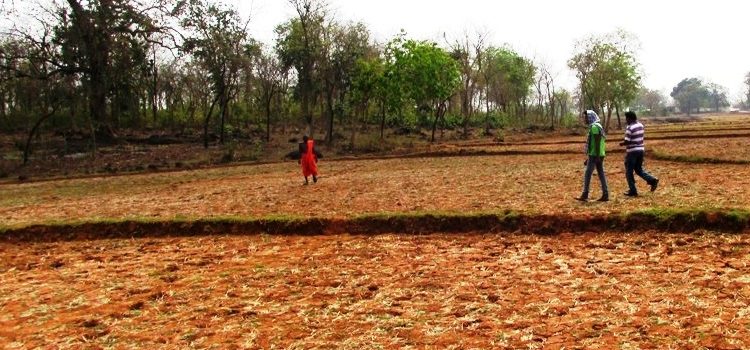Jajpur: Contamination and pollution of soil is assuming alarming proportions in the districts of Jajpur, Bolangir, Kalahandi and Koraput.
This aspect, which has come to light on ‘World Soil Day’ has sent alarm bells ringing. This is because without proper soil conservation all forms of life will cease to exist and there will be serious ecological imbalance.
Many parts of Jajpur, Bolangir, Kalahandi and Koraput districts have been seriously affected by the presence of large quantities of aluminum, chromium and cadmium in the soil, as per a report prepared by the Department of Soil Science and Agricultural Chemistry belonging to the Odisha University of Agriculture and Technology (OUAT), in Bhubaneswar.
The report states that unless steps are taken to prevent soil contamination, there will be serious consequences. The report states that there is high concentration of chromite in five agricultural areas that lie close to the mines at Sukinda in Jajpur district.
There is approximately 5,758 to 12,687 milligrams of chromite present per kilogram of soil. This can seriously affect agriculture production in the days to come, the report states. Moreover, soil on 500 hectares of farmland has also been contaminated due to high concentration of nickel in the same areas. As per the report 0.7 to 0.98% of nickel is found in every kilogram of soil.
This is quite dangerous and in the long term can effect agriculture production which in turn may cause famines, the report states. On the other hand, over 3,567 million tonne of iron ores lie deposited under 24,149 hectares of land in Keonjhar, Mayurbhanj, Sundargarh and Jajpur districts.
This iron ore deposit is also causing soil contamination. Notably, Jajpur, Dhenkanal and Keonjhar districts have deposits of 183 million tonne of chromium under 9,197 hectares of land. As a result, cultivation is affected due to such high concentration of chromium on farmlands.
The presence of 50 million tonne of manganese ore under 10,605 hectares of land in Bolangir, Keonjhar, Koraput, Mayurbhanj and Sundargarh districts is also another reason for soil contamination, the report points out. Sources said farmers have stopped using organic manure and have become heavily dependent on chemical fertilizers for more output turning the soil acidic.
This has led to a decline in sulphur, potash and oxygen content in the soil. Moreover, discharge of industrial wastes and polluted water by various industrial units in the districts mentioned above are the other reasons behind soil contamination. Scientists have harped on the importance of framing laws to prevent soil contamination as early as possible.
PNN






































